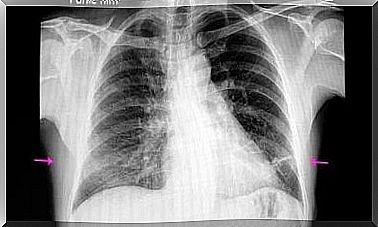Negative Health Effects Of Anger

In addition to the fact that it is not good, in general, to annoy ourselves or those around us, there are also negative effects of anger on the body. There is a close connection between feelings and how the body reacts to them. In today’s article we present the negative effects of anger or anger on health, in the hope that you will avoid it in the future.
Anger and fear are the most harmful emotions for the body, mind and heart. They are said to be the cause of all evil, including some diseases. Although many data remain unknown, it is worth finding out what discoveries have been made so far on this subject.
Avoid anger in order to have a longer and better life
A happy life helps you avoid pain, pathogens and diseases. Do not take things too seriously and try not to get angry and get out of the room in a whirlwind, because this negative reaction will be reflected in your health.
It is not just a matter of adopting a positive attitude and showing education; Avoiding anger can be the best medicine for your body when you have been injured.
When you are angry, your muscles and joints tense, the natural balance of the nervous, cardiovascular and hormonal systems is altered. Blood pressure, heart rate and testosterone levels increase, brain activity suffers (especially in the temporal and frontal lobe area) and you experience an excess of bile, spread to certain parts of the body where it should not reach.

Negative effects of scientifically proven anger
Cardiac arrhythmia
Physical and mental stress caused by anger can cause myocardial infarction or other heart problems.
Liver disease
Anger leads to excessive bile secretion, thus affecting the liver and gallbladder. This substance is eliminated through the bladder, which in turn suffers from stress caused by states or outbursts of anger.
Muscle aches
Whether we annoyed our boss, our life partner, children or because of trafficking, the body secretes the hormone called adrenaline, which is also produced in the case of fear. As a result, you experience muscle aches or spasms, as well as headaches. The most affected areas are the shoulders, neck and back, as they “carry” the highest tension in them.

Diarrhea
The list of negative effects of anger also includes a disease called irritable bowel syndrome, which in turn can cause diarrhea or colitis. Stress, fear, tension and anger produce intestinal imbalances.
Gastritis
This is one of the most common consequences of anger. Its most well-known symptoms are: acid reflux, pain and burning sensation in the stomach. If you go through several episodes of anger, the gastric mucosa becomes inflamed. If you get angry very often, you may suffer from gastritis or ulcers.
Dermatitis
Skin irritations and itching are negative effects of anger. They can also be triggered by crises of stress, nervousness, tension or fear. If you have a wound, it can become infected or worsen, as a nervous person will irritate the area.

Causes of anger or irritability
Of course, some people get angry more easily, while others manage to stay calm. These conditions affect not only us but also those around us.
There are several causes of anger, which depend largely on each individual. What we know for sure is that certain problems or difficulties encountered throughout life can cause us to lose control of our emotions. Anger is a reaction of the mind that allows it to confirm that it is right, which is why an angry person tends to raise his voice, for example.
Anger can also be caused by a threat, stress or other events that the individual cannot control. Nerve suppression is not a good choice, as it can affect both physical and mental health.

How to avoid anger or tantrums?
Psychologists claim that the solution is to cultivate self-control. The fast pace of everyday life “forces” us to get angry about the most insignificant things – we do not have time to take a “break” to reflect a little on the situation. We begin to feel that the whole world is conspiring against us, so that we can unleash our anger.
Traffic problems or long time spent on public transport, frustrations caused by daily obligations, financial difficulties, concerns about the sentimental side or personal problems are not reasons to unleash anger.
Although it seems easy to say and difficult to do, try to gradually change your habits. It is important to give yourself at least ten minutes a day to calm down. How? Practice yoga or meditate, do breathing exercises or simply serve tea, read a book or sit somewhere outside and listen to the birds sing.

An ideal space for relaxation is a clean and tidy room where you can feel a pleasant and soothing smell, produced by a candle or a scented stick or emanated by an essential oil. Listen to relaxing music. The sound of nature, classical music or that used for meditation are excellent choices. Close your eyes, take a deep breath and let your composure calm you.
The moment you feel the negative effects of anger, try to relive that feeling of peace. Another useful method is to breathe slowly while counting down from ten to one. Try not to react negatively in a difficult time or in front of a problem, and your nerves and anger will gradually disappear.









